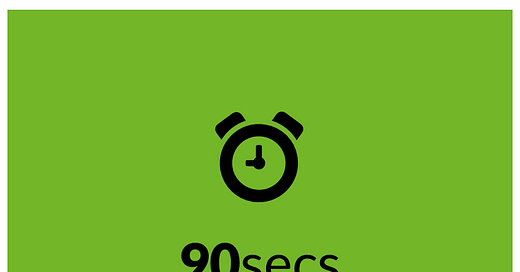Recently I was in the market to buy some services in my new role at Community Leaders Institute. I contacted three providers on the same day by filling in contact us forms. One company was so responsive the salesperson emailed me almost within an hour of getting my form. I scheduled a call, and he sent me a note saying he would be free in the afternoon if we wanted to talk now. I declined and told him we would await the scheduled meeting. Almost a week passed, and the other vendors still had not replied. When I followed up with them, I was told: "They're too busy & they'd get to me when they could." No idea when that would be.
You can guess who won the business.
You may be wondering what this story I just shared has to do with community. Especially the B2B community space. Your customers have lots of options to find answers. If they have a problem, they will go to the place that helps them get the fastest responses. Even if you've spent 100k on your community platform, if Facebook or Reddit is quicker ( and accurate), you will have a challenge.
This is where the service level agreement (SLA) comes in. The concept is you have a target time for response to your customers. Many communities have it set for 1 business day, but some go even lower. I've seen some at 4 hours and others at 60 minutes. However, I am aware that one community proudly shared their community would respond in an average of 90 seconds (hence the image above).
Suppose your customers know your community could answer a question in two minutes. Would they call or even use a ticketing system? And yet the support industrial complex would rather throw more bodies, have more tickets and generally make getting answers and responses a gauntlet of patience.
Now I'm not suggesting you publish an SLA today, and it will solve everything. However, not setting an expectation at the bare minimum allows too much leeway for the interpretation of what is acceptable to your team and externally.
I would set an SLA for your team around the response time expectation. At the end of every day, I want to ensure every discussion started got an acknowledgment from our team on a query. Every newcomer with a comment got some reaction. Yes, it doesn't scale for multi-million post communities, but generally, they'll have the volume where it doesn't matter. Someone will react. On a smaller scale, these touches make people feel the value of using your community channel as their primary source.
Inevitably someone reading this is wondering about benchmarks or industry standards. As a general rule, as mentioned earlier, it's the 24-hour or 1-business-day rule for B2B communities. However, I challenge you instead to look at your other channels, set a goal for yourself of incremental improvement to your next quickest channel, and keep improving. There is an almost guarantee that if you can be more efficient and share your wins, you will get the community resources you seek.
As you may recall, I recently joined the Community Leaders Insitute (CLI) as VP of Marketing & Community. Today is our first event CLIX Spring 2023. I hope to see you there!
I appreciate all your feedback about CLI as we build something amazing. It can't be done without you - the community of community builders! ❤️



